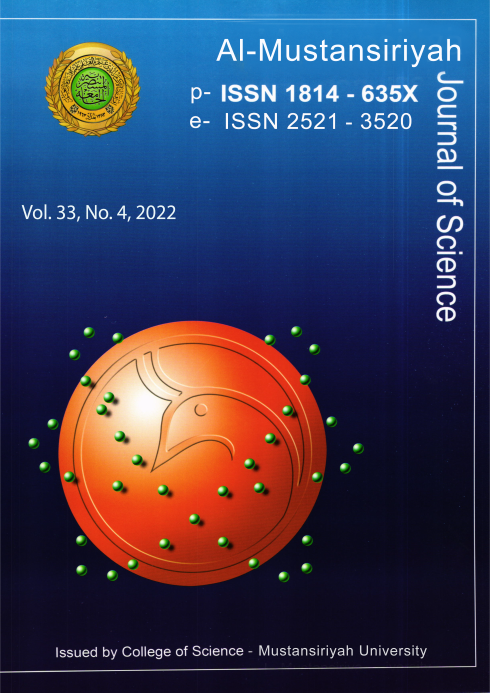Detection and Prevention WEB-Service for Fraudulent E-Transaction using APRIORI and SVM
DOI:
https://doi.org/10.23851/mjs.v33i4.1242Keywords:
Fraud Transactions, APRIORI algorithm, SVM, Confidence, Frequent item set, Ecommerce, Secure Web-Service, Hidden Markov ModelAbstract
With the increased use of information technology, many financial services are available to users at their fingertips. However, this led to many fraud transactions. Automatic fraud identification and detection could improve the user experience and security of online transactions. Using machine learning algorithms, it is possible to detect fraud transactions. Machine learning algorithms have the ability to find the hidden implicit pattern and data relationships from a large dataset. Hence, using this algorithm is possible to detect the outlier from all transactions, which can help in determining the fraud transaction. In this paper, the APRIORI algorithm and Support Vector Machine are used to detect fraud transactions in credit cards via developing a secure web application service enforced the security by standard metrics. We compare the result with the other existing machine learning algorithms. We observed that the accuracy of fraud transaction detection is higher in the proposed algorithm more than 94.56, and the false fraud transaction detection is less than the fraud detection based on the Hidden Markov Model.
Downloads
References
K. Modi and R. Dayma, "Review on fraud detection methods in credit card transactions," 2017 International Conference on Intelligent Computing and Control (I2C2), 2017, pp. 1-5, doi: 10.1109/I2C2.2017.8321781.
I. M. Mary, M. Priyadharsini, K. K and M. S. F, "Online Transaction Fraud Detection System," 2021 International Conference on Advance Computing and Innovative Technologies in Engineering (ICACITE),2021, pp. 14-16,
B. K. Jha, G. G. Sivasankari and K. R. Venugopal, "Fraud Detection and Prevention by using Big Data Analytics," 2020 Fourth International Conference on Computing Methodologies and Communication (ICCMC), 2020, pp. 267-274,
R. A. Kamble, "Short and long term stock trend prediction using decision tree," 2017 International Conference on Intelligent Computing and Control Systems (ICICCS), 2017, pp. 1371-1375,
F. Lv, "Data Preprocessing and Apriori Algorithm Improvement in Medical Data Mining," 2021 6th International Conference on Communication and Electronics Systems (ICCES), 2021, pp. 1205-1208, doi: 10.1109/ICCES51350.2021.9489242.
H. Wu, Q. Liu and Z. Zhang, "Analysis of University Students Employment Recommendation System Based on Apriori Algorithm," 2020 Asia-Pacific Conference on Image Processing, Electronics and Computers (IPEC), 2020, pp. 262-265,
S. Khatri, A. Arora and A. P. Agrawal, "Supervised Machine Learning Algorithms for Credit Card Fraud Detection: A Comparison," 2020 10th International Conference on Cloud Computing, Data Science & Engineering (Confluence), 2020, pp. 680-683,
M. R. Dileep, A. V. Navaneeth and M. Abhishek, "A Novel Approach for Credit Card Fraud Detection using Decision Tree and Random Forest Algorithms," 2021 Third International Conference on Intelligent Communication Technologies and Virtual Mobile Networks (ICICV), 2021, pp. 1025-1028,
N Malini and M Pushpa, "Investigation of Credit Card Fraud Recognition Techniques based on KNN and HMM", IJCA Proceedings on International Conference on Communication, Computing and Information Technology ICCCMIT 2017(1):9-13, June 2018.
Maria R. Lepoivre, Chloé O. Avanzini, Guillaume Bignon, Loïc Legendre, and Aristide K. Piwele, "Credit Card Fraud Detection with Unsupervised Algorithms", Vol. 7, No. 1, pp. 34-38, February, 2016.
Suman, Nutan, "Review Paper on Credit Card Fraud Detection", International Journal of Computer Trends and Technology (IJCTT) - volume 4 Issue 7-July 2013.
V. Bhusari and S. Patil, "Study of Hidden Markov Model in credit card fraudulent detection," 2016 World Conference on Futuristic Trends in Research and Innovation for Social Welfare (Startup Conclave), 2016, pp. 1-4, doi: 10.1109/STARTUP.2016.7583942.
S. Benson Edwin Raj and A. Annie Portia, "Analysis on credit card fraud detection methods," 2011 International Conference on Computer, Communication and Electrical Technology (ICCCET), 2011, pp. 152-156, doi: 10.1109/ICCCET.2011.5762457.
J. Du, X. Zhang, H. Zhang and L. Chen, "Research and improvement of Apriori algorithm," 2016 Sixth International Conference on Information Science and Technology (ICIST), 2016, pp. 117-121,
P. Naveen and B. Diwan, "Relative Analysis of ML Algorithm QDA, LR and SVM for Credit Card Fraud Detection Dataset," 2020 Fourth International Conference on I-SMAC (IoT in Social, Mobile, Analytics and Cloud) (I-SMAC), 2020, pp. 976-981,
Marwa M. Saadoon, Bashar M. Nema, "Security and Efficiency of Information Retrieval System: Survey Study", Gongcheng Kexue Yu Jishu/Advanced Engineering Science Journal, Volume 54, Issue 6, 2022.
Bashar. M. Nema, " Automatic passkey generator using speech biometric features", AIP Conference Proceedings, Vol. 2290, Issue 1, Dec. 2020; DOI: https://doi.org/10.1063/5.0027417.
Rand Mohammed Rafee, Bashar M Nema. (2022) Secure E-Learning System Based on ZNP and AES. Al-Mustansiriyah Journal of Science 33:1, 39-44. Online publication date: 10-Mar-2022.
Downloads
Key Dates
Published
Issue
Section
License
Copyright (c) 2022 Al-Mustansiriyah Journal of Science

This work is licensed under a Creative Commons Attribution-NonCommercial 4.0 International License.
(Starting May 5, 2024) Authors retain copyright and grant the journal right of first publication with the work simultaneously licensed under a Creative Commons Attribution (CC-BY) 4.0 License that allows others to share the work with an acknowledgement of the work’s authorship and initial publication in this journal.






















